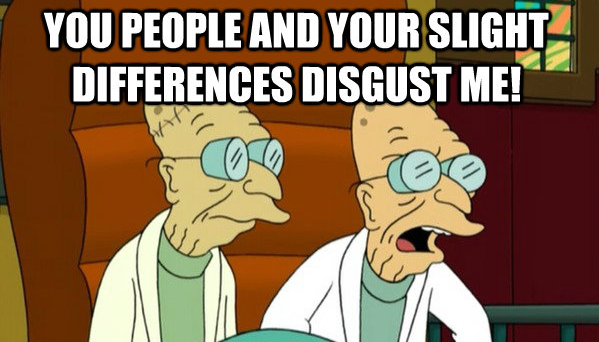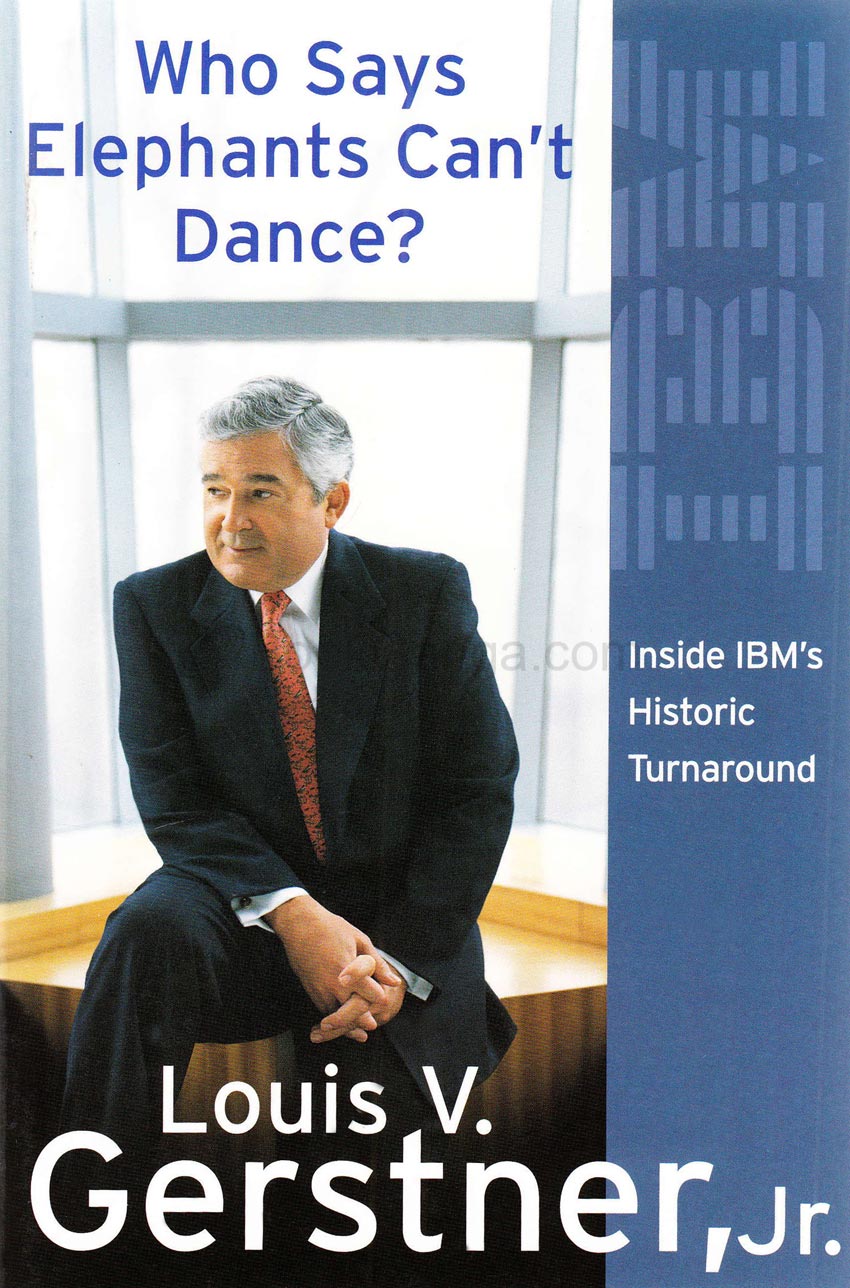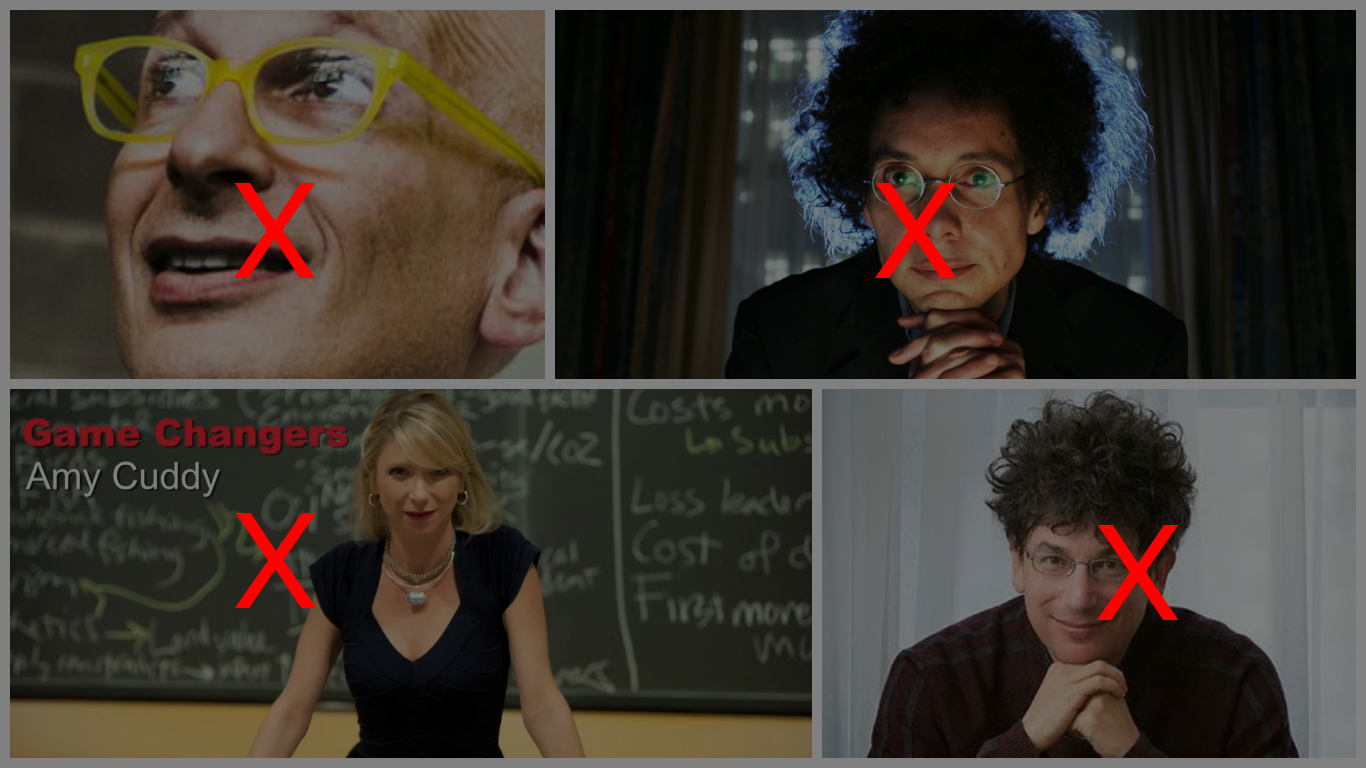The Narcissism of Minor Differences
I have been reading a ton, and have 2 strong recommendations for you today.
The first is a big thumbs up for Louis Gerstner’s Who Says Elephants Can’t Dance? - it’s a great read.
I am generally wary of the CEO Autobiography - Jack Welch and Lee Iacocca wrote very good ones, but upon further scrutiny I found them to be poor role models. Their success went to their head. Welch now peddles Winning™ seminars & books with his new wife. Iacocca during his tenure came to be ridiculed as “I Am Chairman Of Chrysler Corporation Always”, tried a hostile takeover of Chrysler 3 years after retirement, and at one point considered running for president.
Gerstner’s book is refreshingly different. Right upfront he says this is not an autobiography (“not even my kids would be interested in that”) and focuses, after a brief personal history, on IBM. It’s high on detail. He maintains that IBM already had the ingredients for its future success, what he brought was an outward focus and an ability to execute… to take the hard decisions and actions that translate good ideas into competitive advantage. After reading the book I looked up some other interviews he’s done, and the same practical mindset comes through.
One particular passage about his consulting days at McKinsey stayed with me:
I will let you in on a dirty little secret in consulting. It’s extremely difficult to develop a unique strategy for a company; and if the strategy is truly different from what others in the industry are doing, it is probably highly risky. The reason is that industries are defined by economic boundaries, customer expectations, and competitive structures that are known to all. At the end of the day, every competitor fights with the same weapons. So execution is really the critical part of a successsful strategy. Getting it done, getting it done right, getting it done better than the next person is far more important than dreaming up new visions of the future.
This struck home because consulting is my business, and because I think IT consultancies suffer from a “narcissism of minor differences”; a phenomenon that Sigmund Freud described this way: “It is precisely communities with adjoining territories, and related to each other in other ways as well, who are engaged in constant feuds and ridiculing each other.”

Every consultancy tells our clients “we’re unique, we’re the best, the rest suck” while in truth we are 95% similar. We all aspire to the same magic words: Thought Leader. Strategic Partner. Trusted Advisor. Solution Provider.
Lou Gerstner would say that the best consulting firm is one that is great at execution. Get it done, get it done right, and get it done better than the next person. Let’s aspire to that.

The second is actually more of an anti-recommendation: do NOT read Seth Godin’s Linchpin. It is the type of book that Joel Spolsky calls “anecdotes disguised as science”. I found it impossible to keep listening beyond the first few chapters - the fluff was overwhelming. Here’s an excerpt from the intro just to give you an idea:
You are a genius. No one is a genius all the time, but all of us are geniuses sometimes. The tragedy is that society (your school, your boss, your government, your family) keeps drumming the genius part out. This book is about overcoming a multi-generational conspiracy designed to sap your creativity and restlessness.
Uh huh.
In fact, I would put the entire book output of Seth Godin, Malcolm Gladwell, Amy Cuddy (despite her academic cred) and new kid James Altucher into that category. Read their blogs, because they do have good idea-nuggets. But like movies whose trailers give away the entire plot and the best joke, their books have nothing inside that you can’t learn from the title and summary.

Some friends disagree with me on this, and that’s fine. I can’t explain my dislike better than by quoting Rob Walling:
- The amount of actual information garnered from this kind of book can be summarized in a page or two of written text.
- The information is at such a high level that it’s downright impossible to implement. Knowing you need to make your product remarkable is one thing. Knowing how to do that is another thing entirely.
Amen brother. In fact, I am giving serious consideration to what he says next:
Reading a business book that does not have a direct impact on what you’re going to be working on in the next 1-2 months is about as productive as watching Lost.
Which leaves a simple question: what to read? Most business books are written for CEOs (wannabe or real). If you have suggestions, please comment or get in touch!
